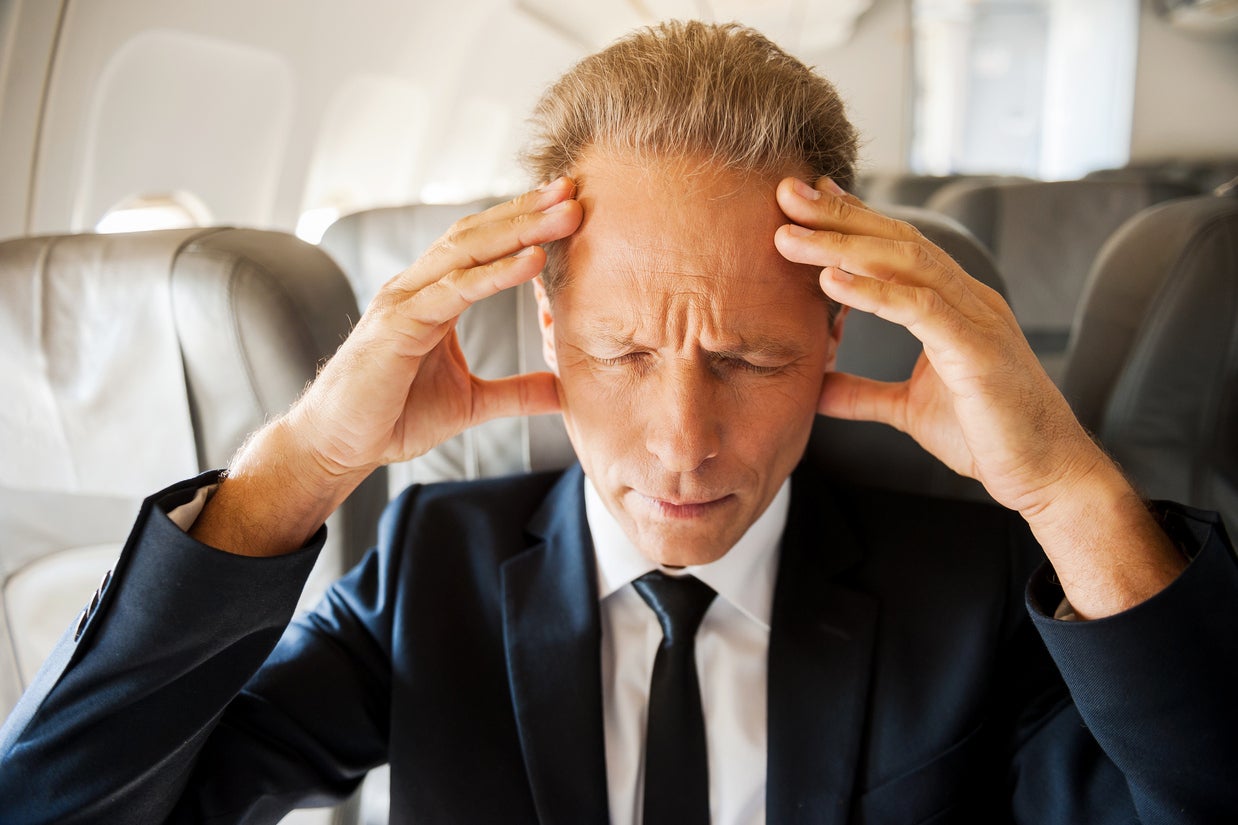Contaminated air on flights can lead to long-term sickness and airlines are ignoring the problem, study claims
Airlines know about the issue but are covering it up, says study leader

Your support helps us to tell the story
From reproductive rights to climate change to Big Tech, The Independent is on the ground when the story is developing. Whether it's investigating the financials of Elon Musk's pro-Trump PAC or producing our latest documentary, 'The A Word', which shines a light on the American women fighting for reproductive rights, we know how important it is to parse out the facts from the messaging.
At such a critical moment in US history, we need reporters on the ground. Your donation allows us to keep sending journalists to speak to both sides of the story.
The Independent is trusted by Americans across the entire political spectrum. And unlike many other quality news outlets, we choose not to lock Americans out of our reporting and analysis with paywalls. We believe quality journalism should be available to everyone, paid for by those who can afford it.
Your support makes all the difference.Contaminated air supply on planes is causing short and long-term health problems, claims a new study published in the World Health Organisation journal Public Health Panorama.
The study, conducted by the University of Stirling in conjunction with the University of Ulster, says there is a clear link between exposure to air contaminated by oil and other aircraft fluids, and a plethora of health issues.
Dr Susan Michaelis of the University of Stirling’s occupational and environmental health research group says: “There is a clear cause-and-effect relationship linking health effects to a design feature that allows the aircraft air supply to become contaminated by engine oils and other fluids in normal flight. This is a clear occupational and public health issue with direct flight-safety consequences."
The study leader, who has a PHD in this field, tells The Independent that airlines have been aware of the problem for 60 years, but refuse to acknowledge the associated health risks of a design flaw on planes that means air can come straight from the engine, unfiltered, into the cabin.
“They won’t admit it because of money and liability,” says Dr Michaelis. “They knew about this problem in the 1950s. It’s unconscionable that they haven’t dealt with it.
“They have the technology to eliminate the problem – but manufacturers are refusing to use it.”
According to Dr Michaelis, airlines that have done studies in this field in the past have manipulated the data for their own ends.
“We need true independent studies. The studies from the Civil Aviation Authority (CAA) and airlines themselves will say they’re independent. They’re not. The results they come out with are really just political statements to delay us.”
The study, which looked at over 200 aircrew (pilots and cabin crew) who had been exposed to a number of substances through aircrafts’ contaminated air, found a pattern of acute and chronic symptoms, ranging from headaches and dizziness to breathing and vision problems.
Dr Michaelis says long-term problems caused by exposure can include neurological and cognitive problems, heart arrhythmias, fatigue, long-term breathing problems and long-term gastro-intestinal problems. “That’s consistent with the toxicology of these substances,” she says.
Dr Michaelis, along with Vyvyan Howard, professor of pathology and toxicology at the University of Ulster, and Jonathan Burdon, a consultant respiratory physician, conducted two independent surveys to review the circumstances and symptoms of aircrew working in the pressurised environment of aircraft. The symptoms were confirmed using medical diagnoses.

One test looked at pilots’ health – almost 65 per cent reported specific health effects of being exposed to contaminated air, while 13 per cent had died or experienced chronic ill health.
The other test looked at specific oil leak incidents; 93 per cent of these led to symptoms ranging from in-flight impairment to incapacitation and almost 75 per cent included adverse symptoms in more than one crew member.
Professor Howard says: "What we are seeing is an acute or chronic pattern of exposure. That is crew are routinely exposed to these fluids at low level in normal flight, with acute higher dose exposures sometimes occurring on top of this lower-level normal exposure. As passengers all breathe the same air, they too will be exposed in all flights. Frequent flyers may be exposed in a similar manner to air crew, while other susceptible individuals may experience adverse effects on just one flight.
“This is a design fault that ensures exposure to oil fumes on all flights. The airline industry is not seeing it this way and ignores all research that is inconvenient to them. However this is the most comprehensive study done to date and should not be ignored.”
Dr Michaelis added that anyone breathing in that environment is at risk, particularly the elderly and unborn babies.
She recommends that airlines sit up and take notice of the data from this study, and that they start to address the problem.
“On the aircraft side, they need to stop delivering air directly off the engine, unfiltered. They have the technology – the Boeing 787 Dreamliner is doing it already.
“On the medical side, we need medical protocol for diagnosis – how to identify aerotoxic syndrome (the collection of symptoms associated with breathing contaminated air) and how to treat it. Plus we need more true independent studies.”
She adds: “It’s unsafe. This is not all about health. This is also about flight safety. If air crew are incapacitated in flight, everyone is at risk.”
Join our commenting forum
Join thought-provoking conversations, follow other Independent readers and see their replies
Comments